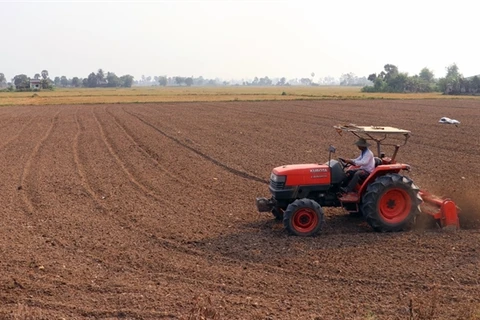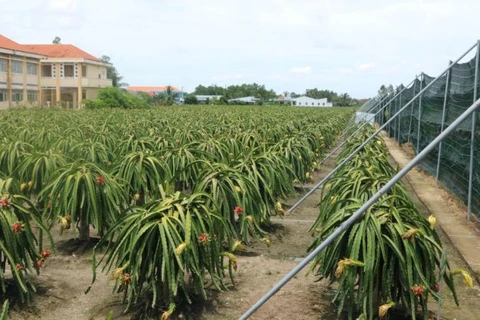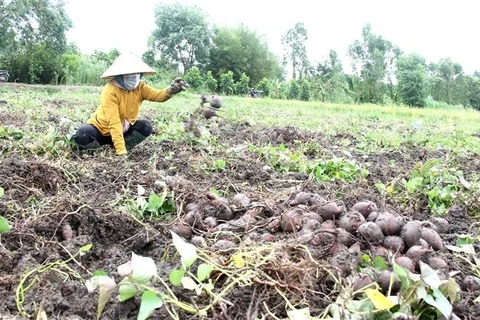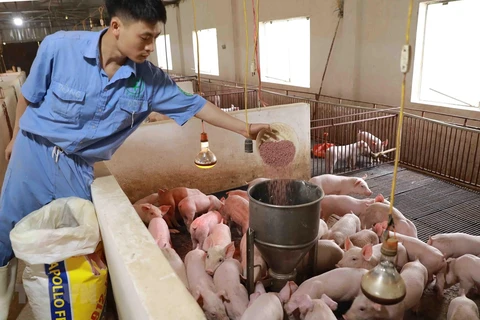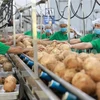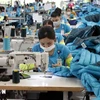Hanoi (VNA) – Deputy Prime Minister Tran Luu Quang has signed a decision approving a strategy to develop plant cultivation until 2030 with a vision to 2050, aiming to turn plant cultivation into a complete and professional technical-economic sector with highly competitive products, meeting requirements in food safety, national food security and other needs of the economy, securing high export values.
Other objectives of the strategy are to effectively use resources, protect the ecological environment, efficiently prevent and control natural disasters, and adapt to climate change, while creating jobs, improving income and quality of life for farmers, contributing social stability, ensuring national defence and security.
Specifically, the growth rate of plant cultivation production is expected to reach 2.2-2.5% per year by 2030, while the average growth rate of added value in the crop processing industry is 8-10% per year.
The rate of crop product value produced under the cooperative and linkage forms is hoped to reach 30-35% of the total value of the sector, while export turnover of crop products per hectare of farming land is expected to hit 150-160 million VND (6,181-6,593 USD).
At the same time, the area of rice farm will be kept stable at 3.56 million hectares with an expected output of over 35 million tonnes of rice.
In 2025, the country will have 107,000 hectares of high-quality coffee, while the area of specialty coffee will be increase to 11,500 hectares by 2030 with an output of about 5,000 tonnes. Meanwhile, rubber yield will be raised to 1.8-2 tonnes per hectare, while that of peppercorn will be increased to 1.5-1.7 tonnes per hectare.
The structure of fruit farms will also be re-organised to form production areas of major kinds of fruits based on advantages of particular regions, processing facilities and market demand, according to the strategy./.
Other objectives of the strategy are to effectively use resources, protect the ecological environment, efficiently prevent and control natural disasters, and adapt to climate change, while creating jobs, improving income and quality of life for farmers, contributing social stability, ensuring national defence and security.
Specifically, the growth rate of plant cultivation production is expected to reach 2.2-2.5% per year by 2030, while the average growth rate of added value in the crop processing industry is 8-10% per year.
The rate of crop product value produced under the cooperative and linkage forms is hoped to reach 30-35% of the total value of the sector, while export turnover of crop products per hectare of farming land is expected to hit 150-160 million VND (6,181-6,593 USD).
At the same time, the area of rice farm will be kept stable at 3.56 million hectares with an expected output of over 35 million tonnes of rice.
In 2025, the country will have 107,000 hectares of high-quality coffee, while the area of specialty coffee will be increase to 11,500 hectares by 2030 with an output of about 5,000 tonnes. Meanwhile, rubber yield will be raised to 1.8-2 tonnes per hectare, while that of peppercorn will be increased to 1.5-1.7 tonnes per hectare.
The structure of fruit farms will also be re-organised to form production areas of major kinds of fruits based on advantages of particular regions, processing facilities and market demand, according to the strategy./.
VNA

